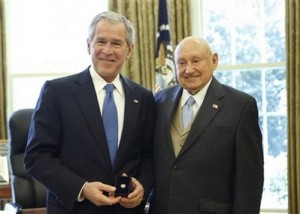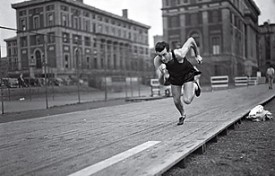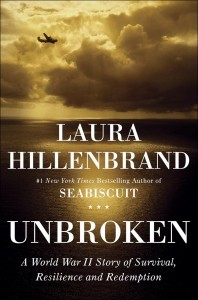There is just something about that simple buttery bun, with a whole slice of white meat chicken and a couple pickle slices in between the bread slices. Those slightly salted waffle fries always hit the spot too–I always get the large size! Last time we went there, I tried their “famous” lemonade, which is near perfect.
Andrea and I first went to our local Chick-fil-A several months after moving to Pennsylvania. What sparked my interest was a radio program that we have on a radio program I had just heard called Legends of Success with John Resnick (which I still try to listen to most Saturdays at 7:00am, News Radio 910 WSBA York). Every week, the host interviews a successful founder or CEO of a large, well-known corporation, and basically asks them about what made their company successful. Normal questions are: Why did you choose this area of business?, What was the hardest decision you’ve ever made?, What was the turning point?, What is your business model?, and Why do you love doing this? I have heard shows where the host interviewed the founders of : Best Buy, Wal-Mart, Outback Steakhouse, Southwest Airlines, Sheetz, and Hasbro. My favorite interviewee–by far–was S. Truett Cathy, Founder and Chariman of Chick-fil-A.
Mr. Cathy is a true, old fashioned, kind-hearted, and not to mention: savvy businessman. I couldn’t explain it any better than the below timeline from his website:
| 1929 | At 8 years old, Truett Cathy begins his entrepreneurial journey to business success by operating a Coca-Cola stand in his front yard. |
| 1935 | The Cathy family, in desperate financial trouble, moves to downtown Atlanta’s Techwood Homes, the country’s first federally funded housing project. At the time, rent was $67 per month. Even with Truett’s income from his paper route assisting, the family cannot make rent and is forced to return to operating a boarding house. |
| 1935 | Truett develops his “customer service” business philosophy while delivering the Atlanta Journal to residents in the Techwood Homes public housing project. |
| 1946 | Truett and his brother Ben open The Dwarf Grill (later named the Dwarf House) in the Atlanta suburb of Hapeville. First day sales total $58.20.. |
| 1951 | Second Dwarf House opens in Forest Park, another south Atlanta suburb. |
| 1960 | The Forest Park Dwarf House burns down, prompting Truett to rebuild and pioneer one of the first fast-food restaurants in the Atlanta area, despite initial reluctance from customers. |
| 1961 | Truett invents the boneless breast of chicken sandwich, calling it a “Chick-fil-A.” He perfected the recipe over a four-year period using cooking techniques from his mother’s humble boarding house kitchen. |
| 1967 | Chick-fil-A premiers at Greenbriar Mall in Atlanta, Ga., pioneering in-mall fast-food restaurants. |
| 1973 | Truett establishes the Team Member Scholarship program to encourage restaurant employees to further their education. Today, nearly 20,000 students have taken advantage of Chick-fil-A’s scholarship opportunities to further their education. |
| 1985 | First full-service Chick-fil-A Dwarf House opens in Jonesboro, Ga. |
| 1986 | First free-standing Chick-fil-A restaurant opens on North Druid Hills Road in Atlanta, Ga. |
| 1987 | The Cathy family establishes their first WinShape® Foster Home at Woodbury Cottage in Mt. Berry, Ga. |
| 1995 | Truett uses Cows to sell chicken. The now famous Eat Mor Chikin® 3-D Cow billboard campaign hits the streets. |
| 2001 | Chick-fil-A opens its 1000th location with overall sales in 2001 reaching $1.242 billion — a system-wide increase of 14.35 percent over 2000. |
| 2002 | Truett is invited to testify in Washington, DC, before the House Ways & Means Sub-Committee on Business Ethics. Later that year, Truett is invited to President Bush’s Economic Forum held at Baylor University. |
| 2003 | Truett and Jeannette Cathy receive the Norman Vincent and Ruth Stafford Peale Humanitarian award in recognition of their “positive difference in the quality of life in our society.” |
| 2004 | Truett releases his fourth book: It’s Better to Build Boys Than Mend Men. |
| 2006 | Truett celebrates 60 years in the restaurant industry with friends, family and business associates at the original Chick-fil-A Dwarf House restaurant in the Atlanta suburb of Hapeville, Ga., where his restaurant career began. |
| 2006 | With nearly 1,300 restaurants in 37 states and Washington, D.C., Chick-fil-A surpasses $2 billion in annual sales in 2006 to remain the second-largest quick-service chicken restaurant chain in the nation, based on annual sales. |
| 2007 | Truett pens fifth book, “How Did You Do It, Truett?”, which offers his personal recipe for building a successful business. |
| 2008 | President George W. Bush personally recognizes Truett with the Presidential Volunteer Service award. |
In the interview, a few good points were made that I truly appreciated. He made it known that he would never work on Sunday. He knew other businessman who had the same conviction, but would still make there employees work that day. Mr. Cathy quotes his father in regards to this, “‘I don’t want to ask people to do that what I am not willing to do myself.”
 Another point that was made is each employees’ emphasis on customer service. Mr. Cathy said something to the effect of, “We just operate by the Golden Rule: ‘Do unto others as you would have them do unto you’.” He is was not just saying that. At the Chick-fil-A we go to, about twenty minutes down the road in Shrewsberry, I have never met any fast-food staff as customer service-oriented as they (a testament to their franchise owner, as well). Whenever someone says “that you”, they always reply back, “Our pleasure!” Even as a fast food restaurant, they make sure everything is top-of-the-line clean–more than most sit-down places. The employees who help keep the place clean by emptying trash and wiping down tables are always kind and cordial, asking if you would like a refill. They will take your cup, refill it to the top, and ask if you would like anything else.
Another point that was made is each employees’ emphasis on customer service. Mr. Cathy said something to the effect of, “We just operate by the Golden Rule: ‘Do unto others as you would have them do unto you’.” He is was not just saying that. At the Chick-fil-A we go to, about twenty minutes down the road in Shrewsberry, I have never met any fast-food staff as customer service-oriented as they (a testament to their franchise owner, as well). Whenever someone says “that you”, they always reply back, “Our pleasure!” Even as a fast food restaurant, they make sure everything is top-of-the-line clean–more than most sit-down places. The employees who help keep the place clean by emptying trash and wiping down tables are always kind and cordial, asking if you would like a refill. They will take your cup, refill it to the top, and ask if you would like anything else.
Believe me, I could go on and on about just how good Chick-fil-A’s food is. I have never been disappointed in the slightest; and even if I could have been, the service and atmosphere blurred everything else over. I haven’t been there in almost a month, now; so I guess we’re do for some very soon!




